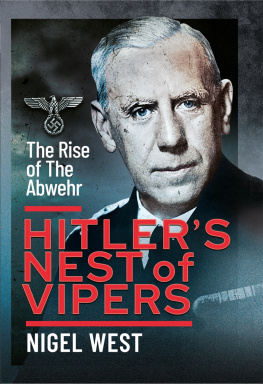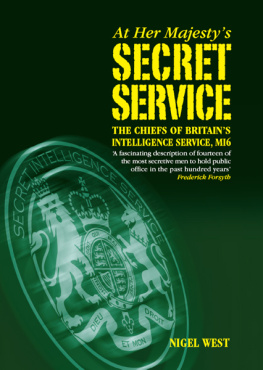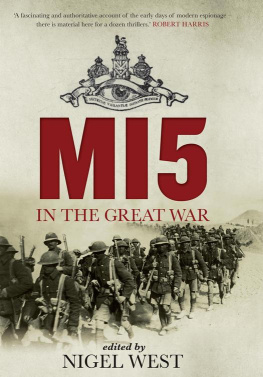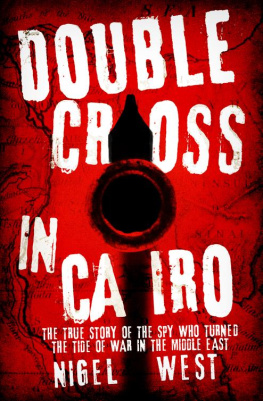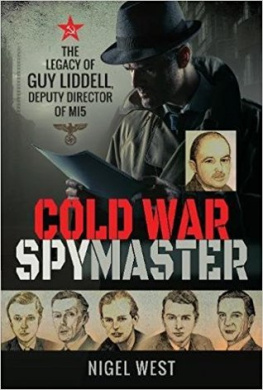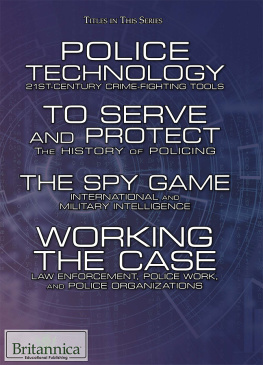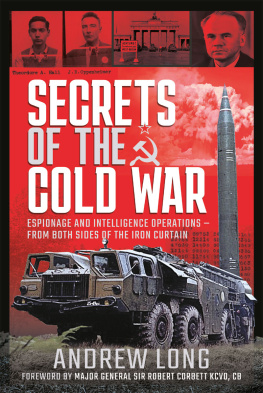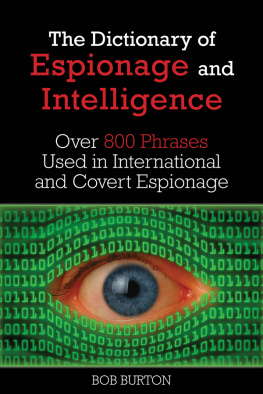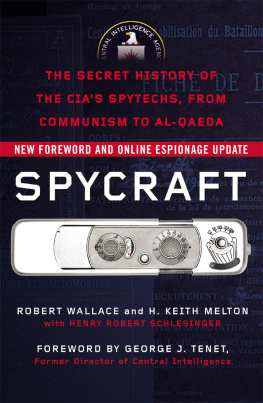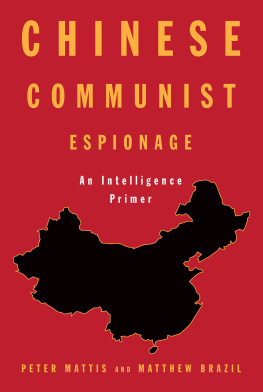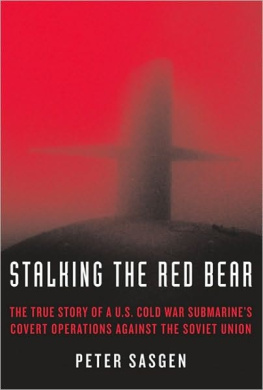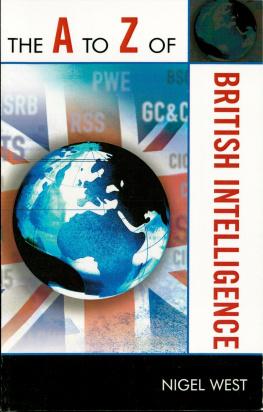
Good intelligence is the best protection against terrorism. Reliable intelligence depends on good tradecraft.
Oleg Gordievsky, KGB defector

Wisdom begins with the definition of terms.
Socrates
First published in 2016
The History Press
The Mill, Brimscombe Port
Stroud, Gloucestershire, GL5 2QG
www.thehistorypress.co.uk
This ebook edition first published in 2016
All rights reserved
Nigel West, 2016
The right of Nigel West to be identified as the Author of this work has been asserted in accordance with the Copyright, Designs and Patents Act 1988.
This ebook is copyright material and must not be copied, reproduced, transferred, distributed, leased, licensed or publicly performed or used in any way except as specifically permitted in writing by the publishers, as allowed under the terms and conditions under which it was purchased or as strictly permitted by applicable copyright law. Any unauthorised distribution or use of this text may be a direct infringement of the authors and publishers rights, and those responsible may be liable in law accordingly.
EPUB 9780750968980
Typeset in 10/13pt Sabon by The History Presss
eBook converted by Geethik Technologies
CONTENTS
FOREWORD
Good intelligence is rarely stumbled upon by accident. More typically, it is the result of what Nigel West describes in this book as great spycraft.
As West explains, good intelligence is, in fact, the product of operations by dedicated, highly trained intelligence professionals with extensive experience, employing solid tradecraft, with exceptional technical support and reliable, secure communications, all after having undertaken thorough planning and after carefully weighed the potential risks and rewards. The overall effort is typically overseen by the station chiefs in respective countries, together with their individual operators and chiefs of operations, in consultation with leaders above them, depending on the sensitivity of the operation. They develop and wargame specific plans, striving to ensure preparation for every possible contingency all while recognising that even the best of plans may not survive contact with an adversary.
Such operations can yield extraordinary insights on the thinking, activities, capabilities, and limitations of a countrys adversaries. To be sure, that is not always the case. And some observers of intelligence organisations, unaware of many extraordinary but never revealed achievements, tend to characterise the intelligence agencies performance by compiling a catalogue of incidents that have gone awry. In part, this is because the most significant intelligence successes are typically not made public for at least a number of decades, as it is important to protect sensitive sources and methods. By contrast, intelligence failures are often immediately evident and remain in newspaper archives forever, ready for use by commentators recalling such failures, often without full appreciation of what may have been accomplished even in those endeavors deemed missteps, much less in those that have gone well.
At the forefront of the intelligence collection architecture is the case officer, the so-called core collector or HUMINT (human intelligence) collector a highly trained individual who identifies, cultivates, recruits and then handles a human source or carries out a sensitive technical operation in the quest for information that will support pursuit of the foreign policy goals of ones government. Each of the stages of recruitment and handling of human sources entails an element of risk; but, however hazardous, the rewards, in terms of insights and information for policy-makers, can be considerable.
Case officers rarely act on their own and they seldom operate as portrayed in the movies. The lone, intuitive, multi-lingual, Ironman triathlete maverick with bulging muscles is a rarity. More typically, painstaking research, careful relationship building, imaginative initiatives and ingenious choreography employed by individuals who look like average citizens (though they are not) working together as a team are the components of a project that, upon fruition, will be so carefully protected that the sources recruited and the methods employed are highly restricted even within the overall organisation, not to mention the rest of government.
The men and women who carry out such operations may, again, seem to be typical citizens, but they are not. And the teams they comprise are nothing short of exceptional. I was privileged to be sworn in as the director of the CIA in early September 2011 after some thirty-seven years in uniform. Based on considerable interaction as a military commander with many Agency officers, particularly in the decade after 9/11, I knew the men and women of the Agency were extraordinary. But, on taking the reins as D/CIA, I was struck by just how extraordinary the talented, quiet professionals of the Agency really were. Indeed, the skills, commitment, patriotism, expertise, creativity and spirit of camaraderie of the men and women who inhabit that sub rosa world were often truly breathtaking as they planned and carried out complex missions in some of the most challenging environments in the world.
Of course, human intelligence involves much more than persuading individuals to act against their natural instincts or to act on other motivations. In any case, there is a very important human dimension in the conduct of source recruitment, as the case officer builds a bond of mutual trust with a potential high-value asset. Throughout that process, good tradecraft is absolutely essential, as it is what the case officer employs to minimise the danger of compromise while performing particularly sensitive tasks.
The CIA has a proud record, dating back to 1947, of initiating and running to a successful conclusion some truly remarkable enterprises. Occasionally news of such a venture, such as the salvage of a Soviet submarine from the ocean floor, the capture of a notorious terrorist in international waters off Cyprus, the establishment of a backchannel to a pariah, the resettlement of a defector or the rescue of US diplomats from a hostile regime, will seize the headlines and maybe attract the attention of Hollywood. The common denominator in those well-known endeavours, and in many more tightly held operations, is the tradecraft that enabled such operations to be executed while minimising the potential for harm to the participants and political blowback for the governments involved.
The continuing development of the tradecraft employed by intelligence operatives is essential to the conduct of their operations. The reservoir of tradecraft comprises the knowledge and techniques accumulated over many years, in many different territories and cultures, that have been required for professionals in the field to carry out potentially perilous assignments with confidence. And that is spycraft, the focus of this book each episode of which is publicly known, but the compilation of which makes for an enthralling, thrilling read!
General (Ret.) David Petraeus
Former director of the CIA
Arlington, Virginia
ACKNOWLEDGEMENTS
The author is grateful for the generosity of numerous intelligence professionals, among them Gervase Cowell, Brian Latell, Ray Batvinis, Michael Fox, Keith Melton, Tony and Jonna Mendez, Patrick Magee, Martin McGartland, Oleg Kalugin, Oleg Gordievsky, Dan Mulvenna, Hayden Peake, Mark Williams, Brian Stewart and the late Harry Williamson, Juan Pujol, Tommy Robertson, Ed Wilson, Harry Verlander, Oleg Tsarev and Arthur Martin.
Next page

